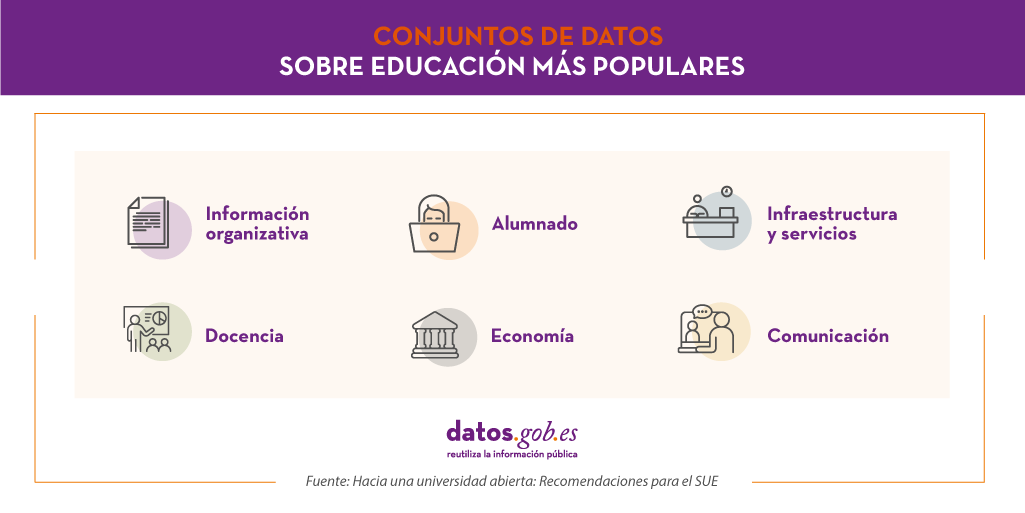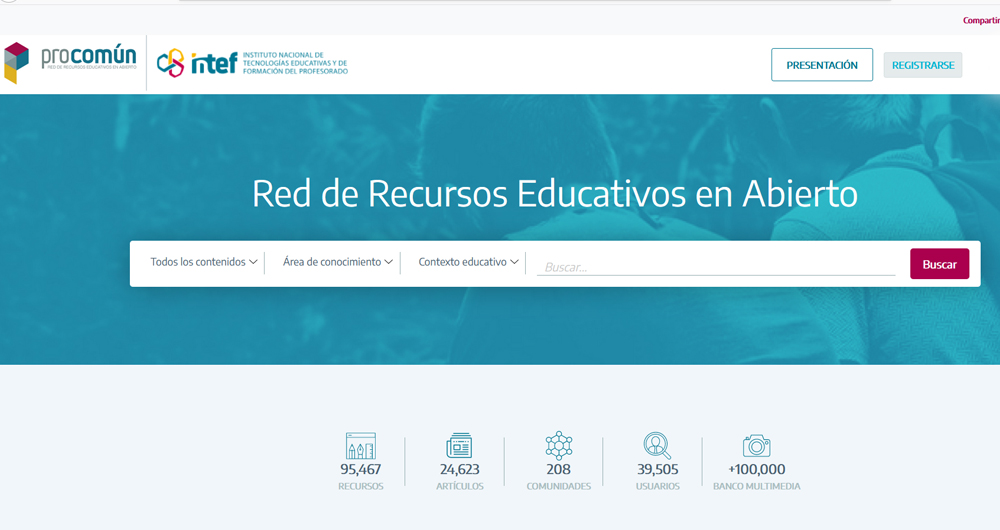Open data as a tool for education and training
Fecha de la noticia: 22-11-2022

The demand for professionals with skills related to data analytics continues to grow and it is already estimated that just the industry in Spain would need more than 90,000 data and artificial intelligence professionals to boost the economy. Training professionals who can fill this gap is a major challenge. Even large technology companies such as Google, Amazon or Microsoft are proposing specialised training programmes in parallel to those proposed by the formal education system. And in this context, open data plays a very relevant role in the practical training of these professionals, as open data is often the only possibility to carry out real exercises and not just simulated ones.
Moreover, although there is not yet a solid body of research on the subject, some studies already suggest positive effects derived from the use of open data as a tool in the teaching-learning process of any subject, not only those related to data analytics. Some European countries have already recognised this potential and have developed pilot projects to determine how best to introduce open data into the school curriculum.
In this sense, open data can be used as a tool for education and training in several ways. For example, open data can be used to develop new teaching and learning materials, to create real-world data-based projects for students or to support research on effective pedagogical approaches. In addition, open data can be used to create opportunities for collaboration between educators, students and researchers to share best practices and collaborate on solutions to common challenges.
Projects based on real-world data
A key contribution of open data is its authenticity, as it is a representation of the enormous complexity and even flaws of the real world as opposed to artificial constructs or textbook examples that are based on much simpler assumptions.
An interesting example in this regard is documented by Simon Fraser University in Canada in their Masters in Publishing where most of their students come from non-STEM university programmes and therefore had limited data handling skills. The project is available as an open educational resource on the OER Commons platform and aims to help students understand that metrics and measurement are important strategic tools for understanding the world around us.
By working with real-world data, students can develop story-building and research skills, and can apply analytical and collaborative skills in using data to solve real-world problems. The case study conducted with the first edition of this open data-based OER is documented in the book "Open Data as Open Educational Resources - Case studies of emerging practice". It shows that the opportunity to work with data pertaining to their field of study was essential to keep students engaged in the project. However, it was dealing with the messiness of 'real world' data that allowed them to gain valuable learning and new practical skills.
Development of new learning materials
Open datasets have a great potential to be used in the development of open educational resources (OER), which are free digital teaching, learning and research materials, as they are published under an open licence (Creative Commons) that allows their use, adaptation and redistribution for non-commercial uses according to UNESCO's definition.
In this context, although open data are not always OER, we can say that they become OER when are used in pedagogical contexts. Open data used as an educational resource facilitates students to learn and experiment by working with the same datasets used by researchers, governments and civil society. It is a key component for students to develop analytical, statistical, scientific and critical thinking skills.
It is difficult to estimate the current presence of open data as part of OER but it is not difficult to find interesting examples within the main open educational resource platforms. On the Procomún platform we can find interesting examples such as Learning Geography through the evolution of agrarian landscapes in Spain, which builds a Webmap for learning about agrarian landscapes in Spain on the ArcGIS Online platform of the Complutense University of Madrid. The educational resource uses specific examples from different autonomous communities using photographs or geolocated still images and its own data integrated with open data. In this way, students work on the concepts not through a mere text description but with interactive resources that also favour the improvement of their digital and spatial competences.
On the OER Commons platform, for example, we find the resource "From open data to civic engagement", which is aimed at audiences from secondary school upwards, with the objective of teaching them to interpret how public money is spent in a given regional, local area or neighbourhood. It is based on the well-known projects to analyse public budgets "Where do my taxes go?", available in many parts of the world as a result of the transparency policies of public authorities. This resource could be easily ported to Spain, as there are numerous "Where do my taxes go?" projects, such as the one maintained by Fundación Civio.
Data-related skills
When we refer to training and education in data-related skills, we are actually referring to a very broad area that is also very difficult to master in all its facets. In fact, it is common for data-related projects to be tackled in teams where each member has a specialised role in one of these areas. For example, it is common to distinguish at least data cleaning and preparation, data modelling and data visualisation as the main activities performed in a data science and artificial intelligence project.
In all cases, the use of open data is widely adopted as a central resource in the projects proposed for the acquisition of any of these skills. The well-known data science community Kaggle organises competitions based on open datasets contributed to the community and which are an essential resource for real project-based learning for those who want to acquire data-related skills. There are other subscription-based proposals such as Dataquest or ProjectPro but in all cases they use real datasets from multiple general open data repositories or knowledge area specific repositories.
Open data, as in other areas, has not yet developed its full potential as a tool for education and training. However, as can be seen in the programme of the latest edition of the OER Conference 2022, there are an increasing number of examples of open data playing a central role in teaching, new educational practices and the creation of new educational resources for all kinds of subjects, concepts and skills
Content written by Jose Luis Marín, Senior Consultant in Data, Strategy, Innovation & Digitalization.
The contents and views reflected in this publication are the sole responsibility of the author.














